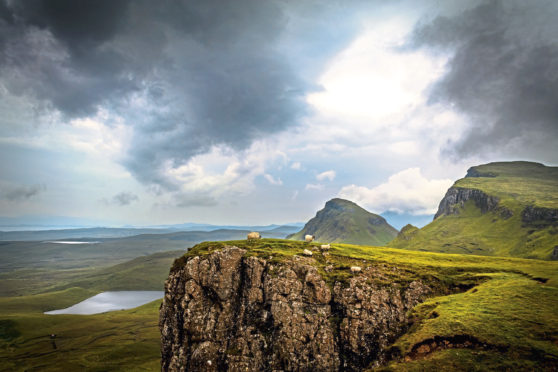The raising of sheep for meat and milk production is important within Europe and plays a key social, economic and environmental role in many “less favoured areas”.
Indeed, when the 85 million sheep across the European Union (when it included the UK) are put together with the 33 million sheep in Turkey, then Europe’s flock is bigger than that of Australia and New Zealand combined.
However, the number of sheep producers in the EU has halved since 2000.
And during the past 10 years, sheep productivity has decreased by up to 40% in some countries.
There are a wide variety of factors contributing to this, such as reductions in profitability, constraints imposed on part-time farmers, reduced labour availability and limited uptake of technology and innovation.
Hence much of the work of my team here at Kirkton & Auchtertyre revolves around helping Scottish, UK and European hill sheep farmers understand what changes they can make to increase the future sustainability of their farming systems.
At the end of last year my team was successful in winning another European project to add to the range of work we already do.
EuroSheep is a three-year EU-funded project led by Idele, the French Livestock Institute.
It consists of ourselves and nine partners drawn from the six major EU sheep-producing countries – France, Greece, Hungary, Ireland, Italy and Spain – together with the UK and Turkey.
The project has two goals. The first is to assess how best to improve individual and flock performance through better management of animal health.
The second will consider how an enhanced focus on the nutritional needs of the animals can help reduce annual feed costs.
The project kicked off in January, but then all face-to-face activities had to be postponed as the severity of the Covid pandemic became clear.
It did, however, prove possible to move some of that planned activity into the virtual environment.
This has primarily consisted of seeking inputs to a short online survey that operated in each of the countries within the consortium this summer and autumn.
The objective of this survey was to engage with farmers, advisers and other stakeholders in the sheep industry and obtain their opinions on the main challenges associated with maintaining good flock nutrition, health and management.
Those responding were provided with lists of potential constraints and asked to identify the top five of importance within their own flock.
Examples of constraints with the potential to impact on adult sheep nutrition included grass and forage availability and energy concentration in the diet, while examples of constraints with the potential to impact on the health of lambs included joint ill, lameness and respiratory diseases.
At the time of writing, the UK team – consisting of my colleagues at the farms together with SRUC animal welfare and SAC Consulting sheep specialists – are preparing for the first UK virtual workshop.
During that national workshop, they will present and discuss the outcomes from the summer survey (which had 1,200 respondees across Europe, including 100 from the UK) with UK stakeholders and seek to agree with the attendees what the five main UK needs are within each of the three main topics: nutrition, health and flock management.
These will then be shared with the wider project consortium at the first international workshop, which will also be held virtually next month.
Once the collective needs across Europe have been agreed, each partner will look for practical solutions within their own countries.
The ultimate aim of the project is not only to identify practical solutions to country-specific issues but also go the next step and identify which of those solutions may also be just as relevant elsewhere.
We already know in the UK that facilitating direct farmer-to-farmer discussions is a great way to transfer knowledge effectively.
Being able to do so on an international scale adds even more value as it markedly increases the chances of best practices being identified, shared and taken up.
- Professor Davy McCracken is head of SRUC’s hill and mountain research centre near Crianlarich in Perthshire.
